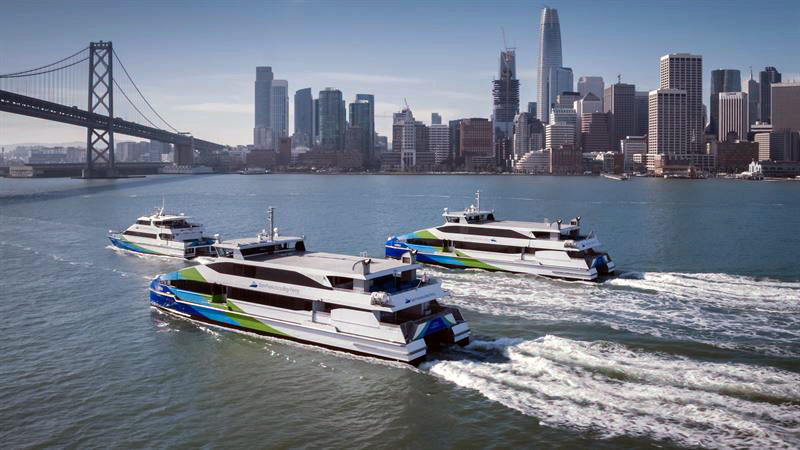
The Federal Transit Administration has awarded the San Francisco Bay Area Water Emergency Transportation Authority a $16 million grant toward its Rapid Electric Emission-Free (REEF) Ferry Program, the transportation agency announced Nov. 30.
The award means that four ferry projects at the Alameda Seaplane, Downtown San Francisco and Main Street Alameda ferry terminals are now receiving a significant financial boost from the federal government.
“The grants help transit agencies make investments to increase reliability, improve connections to other modes of transportation, and bring older ferry systems into a state of good repair,” FTA Administrator Nuria Fernandez said.
The four projects, which are also funded by Regional Measure 1 bridge tolls and Alameda County’s transportation sales tax, Measure BB, call for making structural changes to passenger floats, procuring and putting in battery banks, making grid connections and installing vessel charging equipment.
The FTA funding helps to advance WETA’s effort to deliver the country’s first high-speed, high-capacity zero-emission ferry service, according to the agency.
“We’re entering a second golden age of ferries here in the Bay Area, and I’m proud that WETA is leading the global effort to decarbonize the industry,” Monique Moyer, vice chair of the WETA Board of Directors, said. “(T)his grant is transformative for our local efforts to reduce pollution.”
Wärtsilä, a company specializing in marine power, propulsion and lifecycle solutions, has been tapped as the electrification systems integrator for WETA’s REEF Ferry Program. Seattle-based Elliott Bay Design Group has been hired to oversee the design and construction of the new 300-passenger battery-electric vessels, while San Diego-based Aurora Marine Design is expected to manage “a class of smaller battery-electric vessels” serving the San Francisco waterfront and advise on the overall zero-emission system plan, according to WETA.
